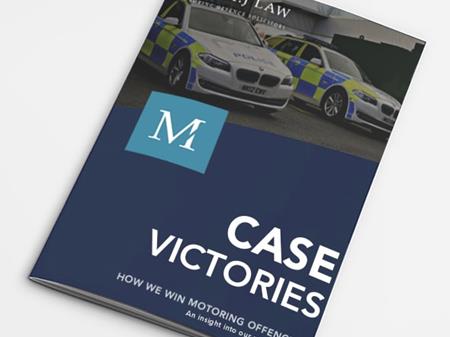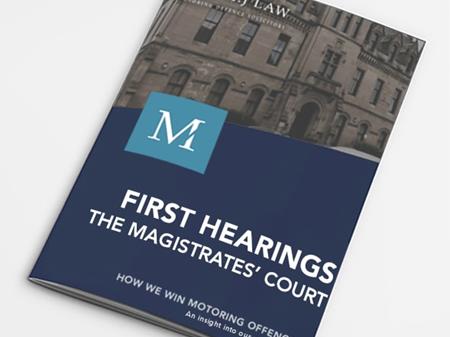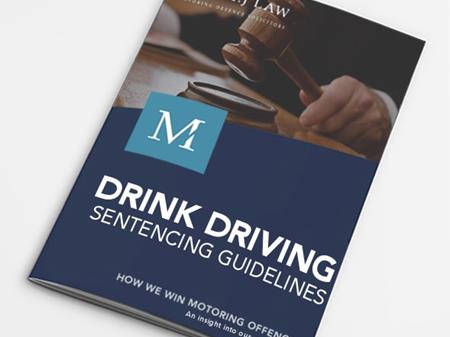
Drink Driving Spiked Drinks Argument
A 'spiked drinks' argument is known as a 'special reason'. A special reason is not the same as a defence because you have to enter a guilty plea in order to raise it, but it does give the magistrates the power not to disqualify you from driving. Our team of specialist driving defence solicitors regularly represent clients across the UK who have consumed alcohol or drugs unknowingly. It does not matter if the person who 'spiked' the drinks did so by accident, so long as you did not know you were consuming additional alcohol. Moreover, it does not matter if you did consume some alcohol knowingly, so long as it did not put you above the legal limit. A spiked drinks argument will also apply to a beverage that contains more alcohol than you realised (e.g. a double instead of a single).
BBC News recently reported that many victims of spiked drinks were accused of having 'one too many'. A belief that police in England and Wales "won't do anything" adds to victims' reluctance to come forward, says a Home Affairs Committee report. Victims criticised the attitudes of door staff of pubs and clubs, who rejected their concerns or even threw them out for being "drunk". (BBC) M.A.J Law have heard reports of similar incidents involving people charged with drink driving. The police often brush off reports of spiked drinks and refuse to investigate claims. Instead, they push cases cases to court and expect people to roll over.
If you're arrested for drink driving and you think your drink may have been spiked, it is important that we explore this possibility. Drink driving carries a mandatory driving disqualification unless the court finds special reasons. M.A.J Law has previously won spiked drinks cases without the 'spiker' having to attend court, and without expert evidence. It may be easier than you think.
Will the 'spiker' get in trouble?
Please remember that a spiked drinks argument can be raised even if the drinks were bought innocently and in good faith. This commonly arises in cases where friends are buying each other drinks. If you ask your friend for a single, but they buy you a double, you have consumed more alcohol than you realised. So long as you make reasonable enquiries to check what you're drinking, you can still raise the argument.
Case Study - Freedom of Information
In a recent case we dealt with, our client had claimed his drink had been spiked. His friends denied buying him drinks containing additional alcohol, and he could not identify which drink contained the excess. This was, of course, a difficult argument to win. As part of our investigation we carried out a Freedom of Information Request with the local police force. We asked them to confirm how many reports of spiked drinks they had received at this particular establishment. We were shocked at what we had found. Over the last 6 months the police had received over 20 reports of spiked drinks at one pub! The same pub our client had been drinking at. We presented this evidence to the Magistrates' and they agreed with us. Special reasons was found and the disqualification was removed.
The law on special reasons - Spiked Drinks
Newnham v Trigg [1970] R.T.R. 107
It cannot be a special reason for a defendant to say simply that he was mistaken as to the amount of alcohol that he had drunk. In this case, the defendant had been given whisky in bed by his wife, but by reason of his cold, could not tell how much he had drunk. It was held that ignorance of the exact quantity of drink cannot be a special reason, whereas a mistake as to the quality might be.
Robinson v DPP [2003] EWHC 2718
A defendant whose breath-alcohol level was 87µg/100ml contended that he was a Rastafarian who did not drink and that prior to being stopped he had attended a function at which he had drunk what he had assumed to be a non-alcoholic punch. His admitted feelings of tiredness he put down to a long day. The magistrates held that he was under a positive duty to make inquiries as to the content of the punch and therefore declined to find special reasons for not disqualifying him. A driver who assumed that a drink did not contain alcohol was taking a risk given that the purpose of the legislation was to ensure that people did not drive with excess alcohol. It was for the defendant to show in mitigation that he had done all that he could reasonably be expected to do to avoid the commission of an offence. In any event, given the high level of alcohol revealed by the breath analysis, the magistrates would have been entitled to find that they should not exercise their discretion in his favour notwithstanding that a special reason might otherwise have applied.
Pugsley v Hunter [1973] R.T.R. 284
It was held in this case, following R. v Shippam [1971] Crim. L.R. 434, that where a defendant can establish that:
- his drink was “laced”;
- he did not know or suspect that his drink was “laced”; and
- if his drink had not been “laced” the alcohol level in his blood would not have exceeded the prescribed limit, the court could be entitled to find special reasons, but that the defendant must establish
- with medical or scientific evidence that the added drink explains the excess.
It should be emphasised that even if special reasons have been established, the court must go on to consider whether or not to exercise its discretion in the defendant’s favour. If the blood- alcohol level is high, or the impairment substantial, the court is bound to take this into consideration.
M.A.J Law offer free initial advice to anyone charged with drink driving. We can explain your options in detail from the outset.
Drink Driving Sentencing Guidelines
All magistrates use sentencing guidelines before passing sentence. The purpose of the guidelines is to ensure that the sentence is fair and proportionate. You will know by now that drink driving offences carry mandatory driving bans (unless the court finds a special reason). Check the chart below to work out the length of your driving ban. You can also use our DRINK DRIVING BAN CALCULATOR for an instant result.
| Breath | Blood | Urine | Disqualification |
| 36 - 59 | 81 - 137 | 108 - 183 | 12 - 16 month |
| 60 - 89 | 138 - 206 | 184 - 274 | 17 - 22 month |
| 90 - 119 | 207 - 275 | 275 - 366 | 23 - 28 month |
| 120 - 150 > | 276 - 345 | 367 - 459 | 29 - 36 month |
If you have a previous drink driving, drug driving or failing to provide within the past 10 years the minimum disqualification is 3 years. The Drink Driving Rehabilitation Course will reduce the length of ban by 25%.
Why you should avoid a spiked drinks argument
The problem with a 'spiked drinks' argument is that the burden falls on you to raise it. You must establish on a 'balance of probabilities' that you consumed more alcohol than you realised. For obvious reasons, this can be difficult. If the court do not find special reasons, they will disqualify you.
You may not know that this type of argument can always be raised later in the case. It may be advantageous to challenge the allegation first and check the evidence. We regularly win drink driving cases due to mistakes made by the police and CPS. If the evidence is correct, you can always change your plea later on a argue spiked drinks (as a 'plan b'). The magistrates will not necessarily know that you challenged the allegation to begin with.
If the court finds a special reason you would not usually be banned. There are circumstances where the court can still impose a reduced disqualification, but this is unlikely. If you're convicted of drink driving again within a ten-year period (having previous been successful with special reasons), the minimum 3 year disqualification will apply. You can still argue spiked drinks with previous drink and drug driving convictions.
FAQ - Spiked Drinks
-
What evidence do I need to argue spiked drinks?
You are required to prove that your drink was spiked and that your drink was spiked without you knowing. Evidentially, this could take the form of a witness statement from someone who saw what happened. You are also required to show that had your drink not been spiked, you would have been under the legal limit of alcohol whilst driving. Expert evidence would usually be needed to establish this point, but not always. -
Can I argue special reasons even if I have previous convictions?
Yes. If you have a previous conviction for drink or drug driving of failing to provide a specimen, you can still argue special reasons. -
What other special reasons arguments are there?
There are multiple special reasons. Shortness of distance driven and driving in an emergency are considered special reasons arguments. -
Will I go to prison for drink driving?
Going to prison for drink driving is unlikely. Only in the most serious circumstances will a person receive a custodial sentence for drink driving. The odds are greater if a person has a relevant previous conviction or if there were serious aggravating factors.
Thinking of pleading guilty?
Our Case Studies take a look a real cases involving real people. You may also be interested in reading about court hearings in the Magistrates' Court and Sentencing Guidelines. You can also view our case studies page for more information.

A Summary of Recent Cases – Marcus A Johnstone
How to win the 'unwinnable' cases...

Drink Driving – Your First Court Hearing
This booklet discusses a drink driving first court hearing - Is a solicitor necessary?

Will you go to prison?
This booklet looks at the Magistrates' Court Sentencing Guidelines for drink driving
Next Steps: Please get in touch to discuss your case with a member of our team. You can use the contact form below or call 01514228020 for free initial advice. You can also use our drink driving ban calculator or check out our video series.



